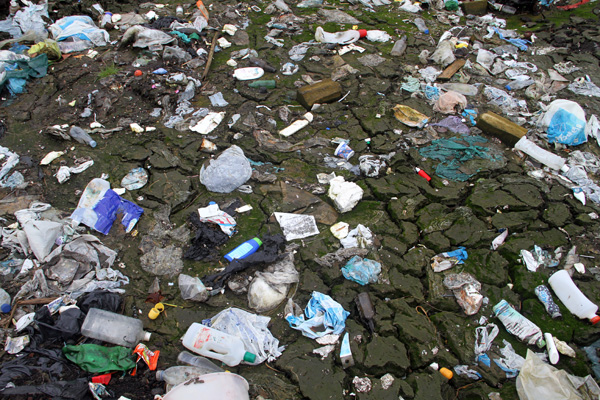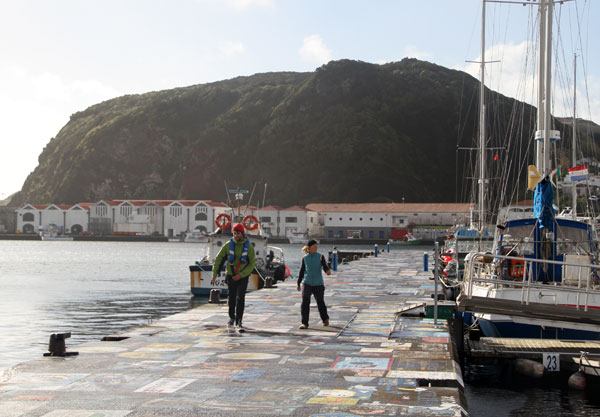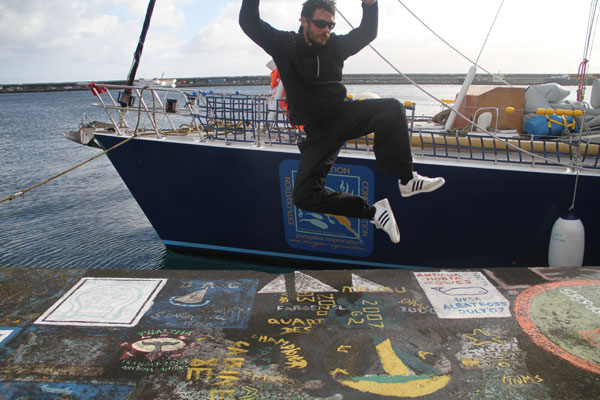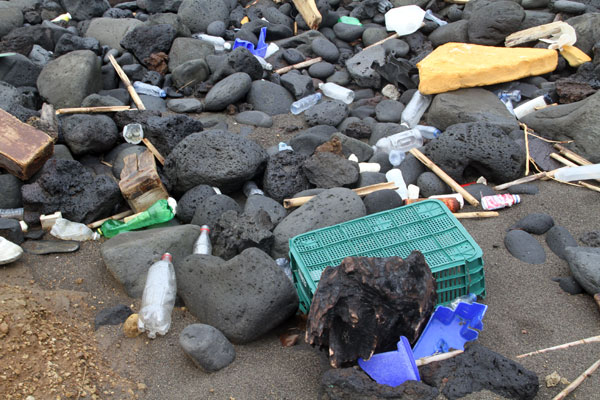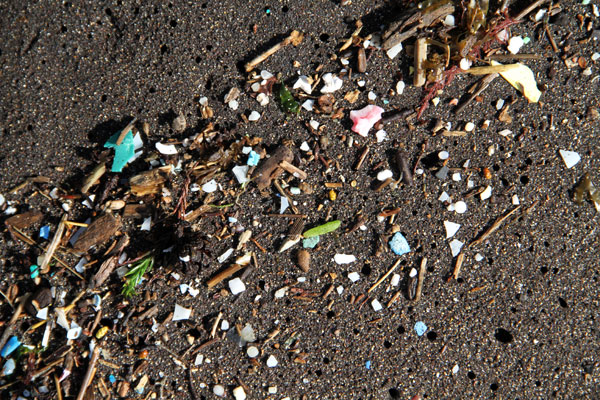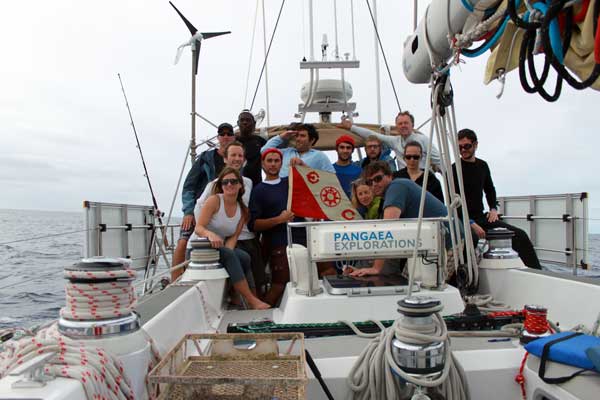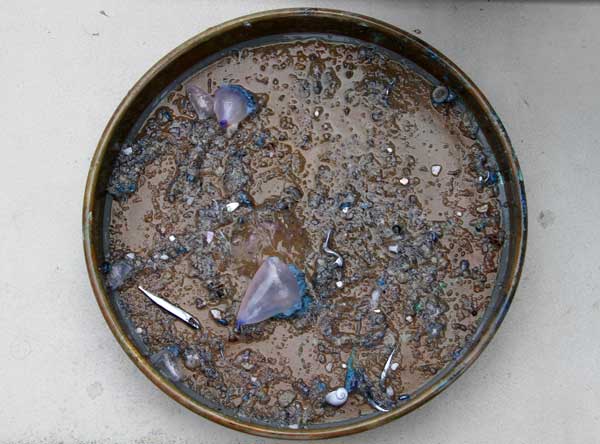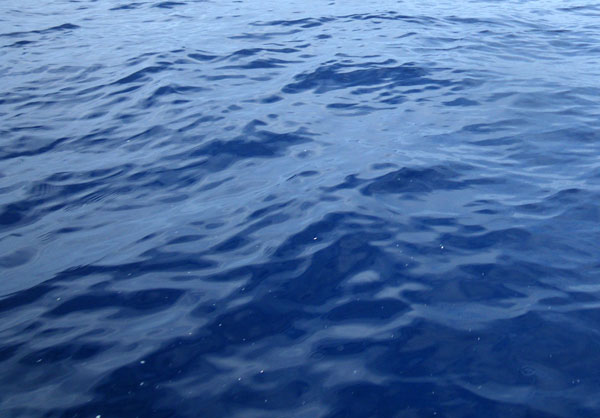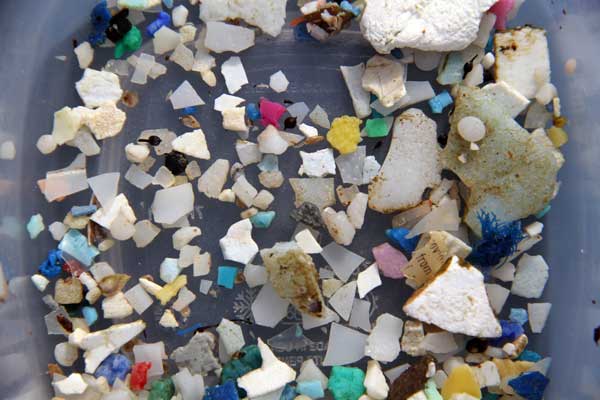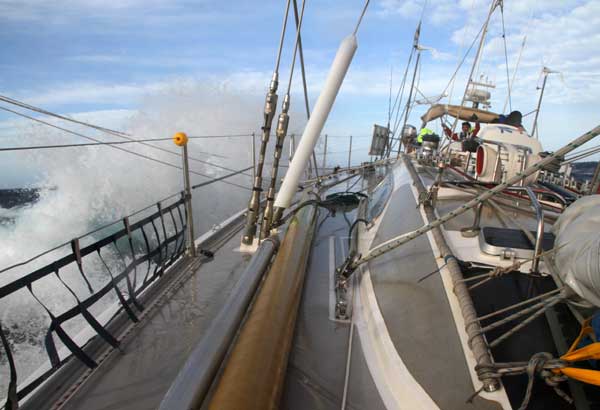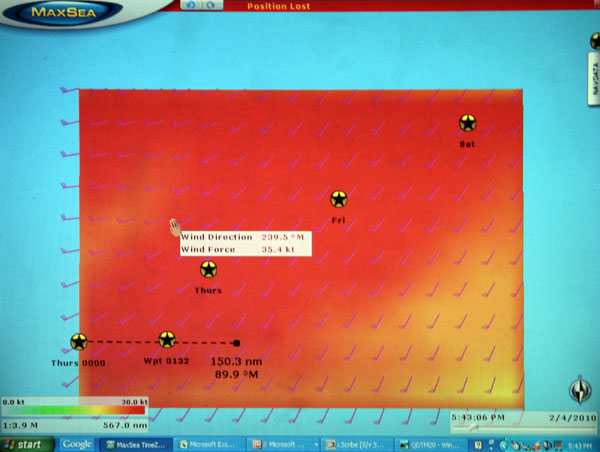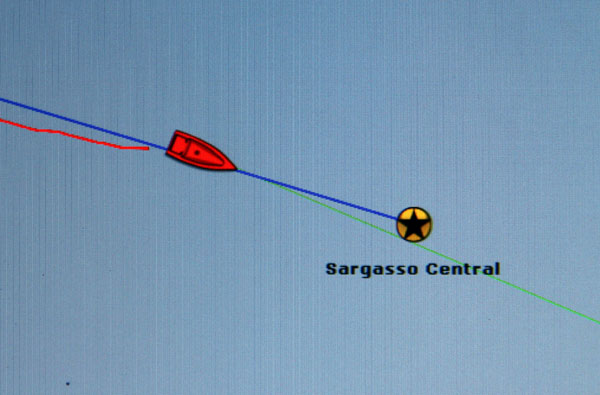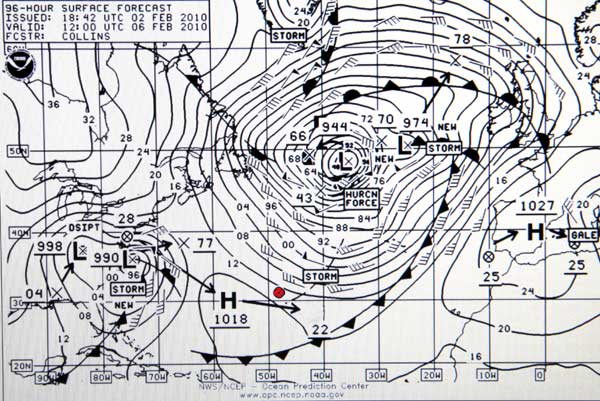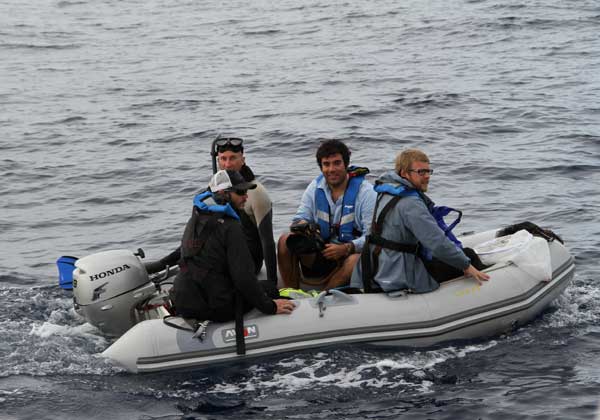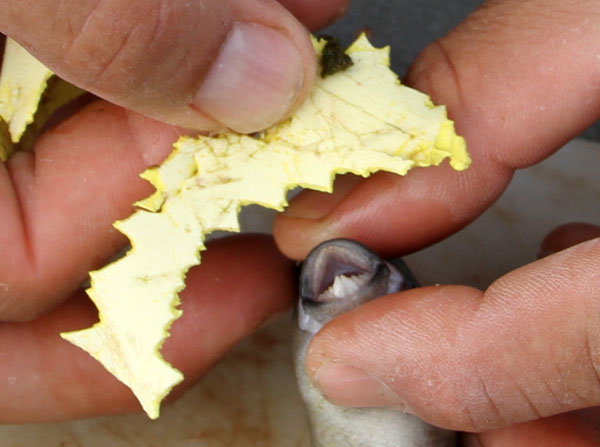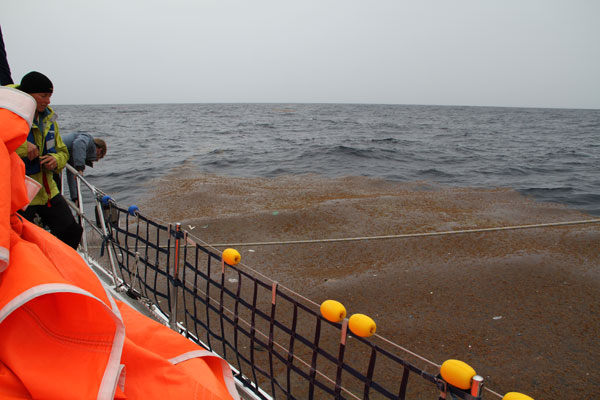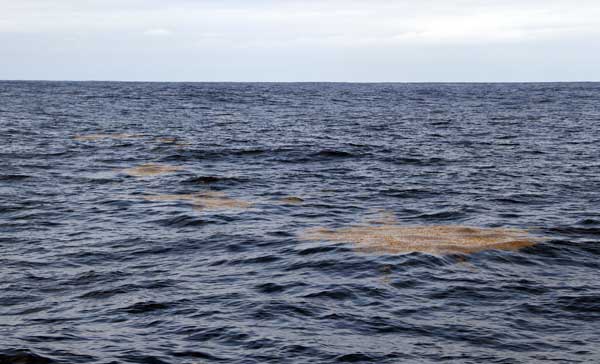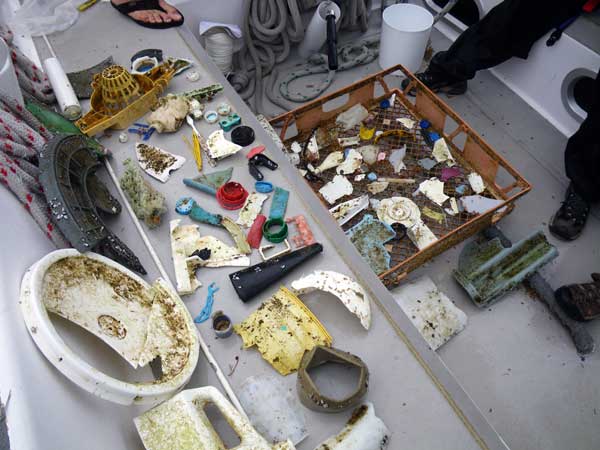All sequels have two things in common. Firstly they are made because the original was such a great success and secondly they get worse and worse with every new part. This storm was really the perfect storm; stirred but not shaken with a sense of danger but not dangerous. Just a nice taster for green fish like us. The sequels however…
The wind reached its highest peak the second day, up to 60 knots (111 km)! The boat rocked day and night like a cradle on speed. There was no way stopping it or even slowing it down. It kept going and going and going.
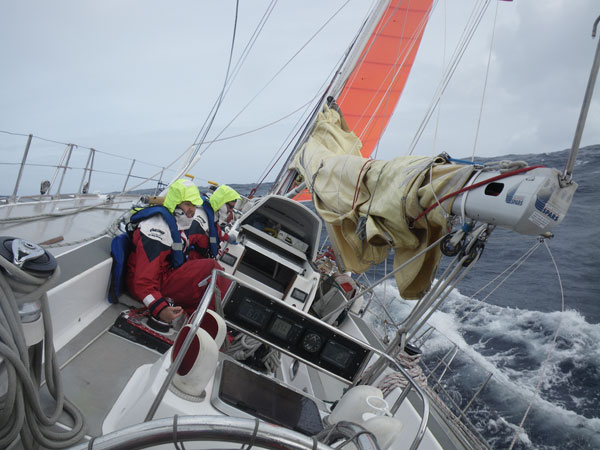
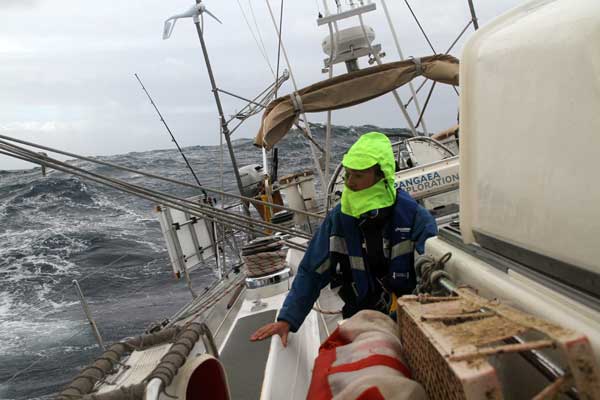
Hours and hours of sitting outside during watch make you an expert in wave science. When a big one just drops below the boat, lifting it up at first and then tilting it 45 degrees or more, there is a good chance you can expect a shower when the boat is flipping back to the other side. Heads down is the advice. Big waves usualy come in series of three, building up towards the great finale of the last one. Again: heads down! The ocean is moving in big waves, more like mountains and valleys, covered with smaller peaks and ridges. Where the big waves usualy move below the boat, thanks to the magnificent work of the auto-pilot, the small waves are rolling over constantly as they are carried along by the big ones. Sometimes the auto-pilot brings us right on top of a wave, surfing its edges and allowing the smaller waves to come aboard. Not all waves are following this pattern however. The changing wind makes them divert course or bump into one another. Occasionally, about one time a watch, all possible disaster scenarios are combined creating a straight flush. Water is not sprinkled, washed or showered on deck, it is shot down, hammered and smashed. I can only compare it with certain massage jetstreams one can find in a sauna complex. Its hard to stay upright when you are getting guttered. On friday we were flushed so hard and long that my life jacket blew up, which normally happend when you fall over board… It blows up faster than you can comprehend; before you know it you are squeezed by a horseshoe shaped airbag. In combination with four layers of clothes and foul weather gear, it makes you wonder what will be the cause of death mentioned on your death certificate when you fall overboard: drowned or suffocated. After the first shock I shake most of the water of me like a wet dog before running inside to get rid of this life saving monster.
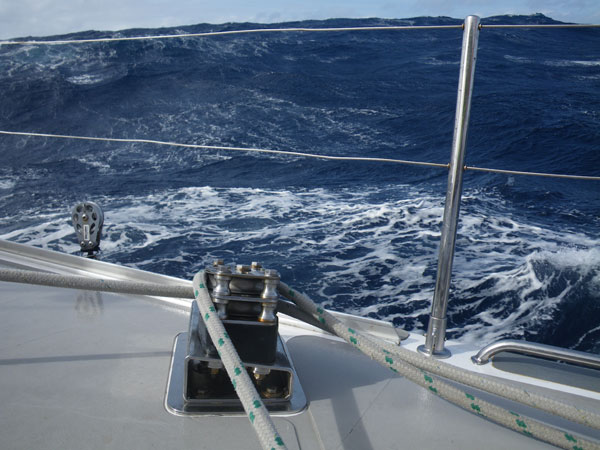
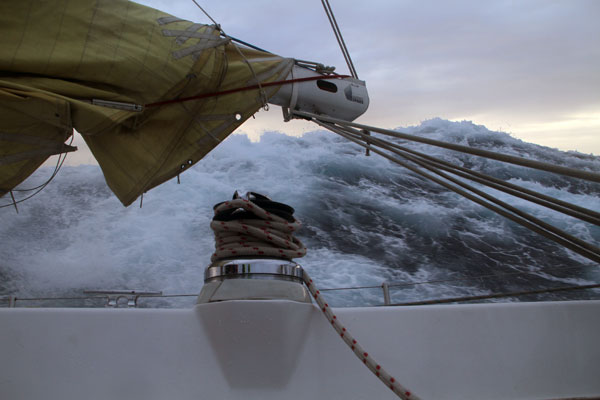
Saturday morning brings more of the same weather and its just like life stopped on the boat. Only what is strictly necessary is being done: eating, shitting, sleeping (not always in that order). If not on watch, people are in bed, trying to pass time and holding on to anything that helps like straps, ropes, handles and prayers.
I wish it was over now. Saturday night we all have a fever, fucked up of yet another sequel. How boring can it get? We want to leave the theater even before the popcorn is finished but there is nowhere to go. This is it.
Finally the sky starts to clear up, a trillion stars appear, probably the most I have ever seen, and the credits start to roll…
The End.

During the morning shift the wind drops and the mountains return to hills. We can use the main sail again for the first time in days and decide to rush to the Azores as soon as possible. We’ve all had it, and since this is a ‘dry-boat’ (no alcohol), all we can think of now is beers, beers and cheers!


